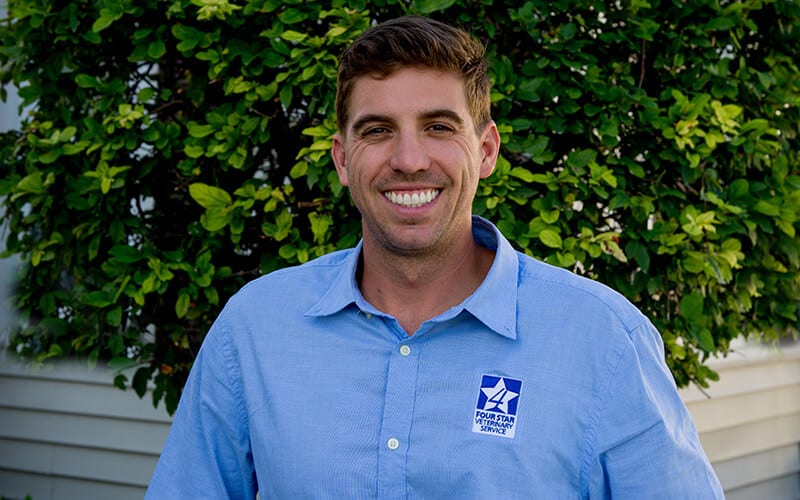
The first few weeks of a calf’s life are the most important for developing a healthy animal. “Everything we do for calves in the first 6 weeks will dictate how they perform for the rest of their life,” stated Taylor Engle, DVM, with Four Star Veterinary Service in Chickasaw, Ohio.
“And in the first 10 to 14 days, if a calf has a really bad experience and can’t get through it, it will struggle for the rest of its life,” he added. “The chance of that calf hitting its true potential is limited whether as a beef animal or as a heifer replacement.”
Engle suggests several steps to take for providing the best care possible to help young calves grow into healthy, productive animals.
Good plane of nutrition
The first step in a calf’s life is making sure it starts off with adequate colostrum from a cow that has been vaccinated.
“Not all colostrum is created equal,” Engle said. “It’s what we put into the cow before she creates her colostrum that is important. Vaccinating a cow before she calves will allow her to increase the amount of antibodies she puts into her colostrum and dramatically benefit the calf.”
He also wants colostrum intake measured and the colostrum quality determined with a refractometer. “So really focus on good colostrum management, and make sure those calves have good colostrum intake,” he said.
After colostrum, follow up with a good milk replacer that mixes well and is easily absorbed by the calf. As the calf grows, it also develops an active immune system, which takes a lot of energy. And if the calf is stressed, it will need more energy. “If we stress a calf, it’s going to need a good plane of nutrition,” Engle said.
In addition, provide only good, clean, fresh water for calves so they will drink plenty of it. “If a farmer won’t drink out of the bucket, we shouldn’t ask the calf to drink out of it either,” he said.
Super-clean environment
The next step is to ensure calves have a “super-clean environment,” Engle said. “But a lot of dairy beef producers struggle with disinfection. If we put a calf in a hutch or pen that hasn’t been disinfected, that calf will have a problem if there was a calf before it that had scours. The animal will get the disease and continue to pass it along to the barn. Make sure to disinfect the entire calf area.”
In addition, bottles used for feeding should be completely disinfected between calves to reduce disease pressure.
Good bedding maintenance
Quality bedding is important for good calf health. Engle prefers straw bedding over other types including sawdust, which can lead to respiratory problems. Straw bedding allows the calves to nest and keep warm in cold weather.
Good bedding, and not just straw bedding, will help decrease naval infections. “If a calf’s naval gets infected, it will translocate to the liver, and the animal will be systemically ill which causes lots of challenges,” he added.
Calf bedding must be kept clean and changed on a regular basis to help reduce stress, which increases a calf’s need for more feed.
“Always keep good clean bedding because in the winter it’s a warmth provider,” he continued. “In summer if the bedding is not changed, it will get moist and will have flies and bacteria growing on it, which are detrimental to calf health.
“It takes time to do a good job with bedding,” he added. “Some things we have to do with these calves are not convenient.”
Disease prevention
Baby calves are at risk of developing scours or respiratory disease, which threatens to upend their health for a lifetime. In the first few weeks, Engle focuses on enteric pathogens including the parasite cryptosporidium, bovine coronavirus and rotavirus, and bacteria including E. coli, clostridium and Salmonella.
“Definitely disinfection will help reduce the environmental disease pressure,” he said. “Water is important too, because as these calves have an enteric challenge, they will scour and become dehydrated. We have to have calves hydrated to prevent certain diseases and stay healthy.”
Taking steps to ensure newborn calves stay clean, warm, hydrated and fed will go a long way to producing healthy animals for future markets, according to Engle.
